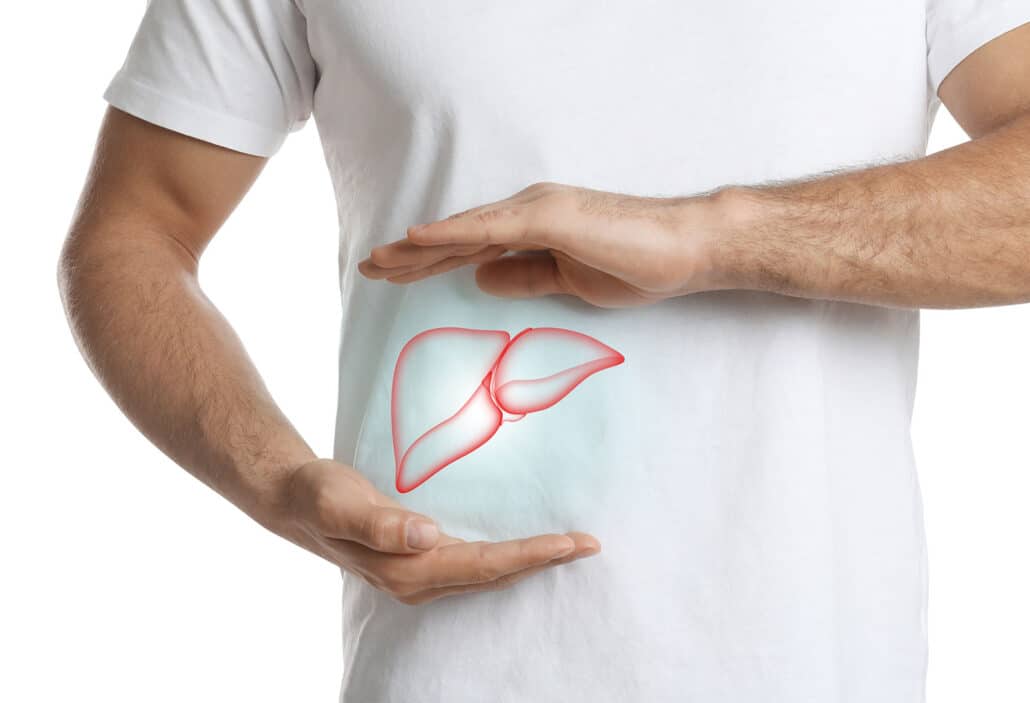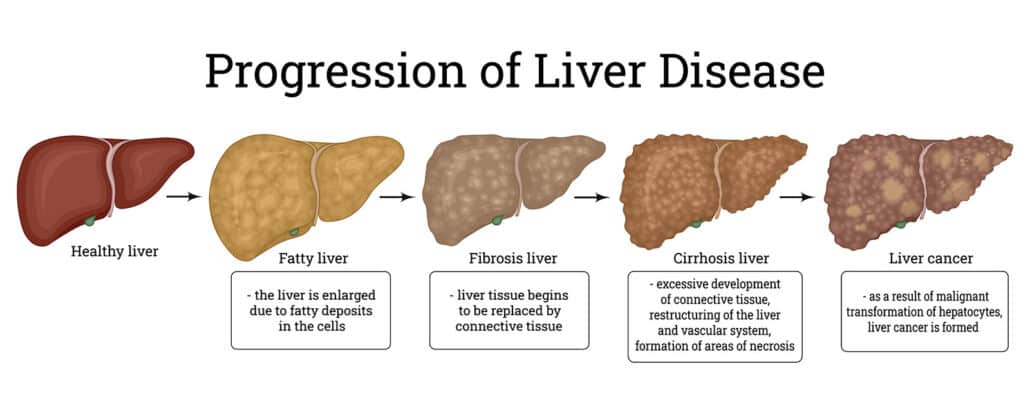Alcoholism is a disease that damages the human body in various ways. Some of the worst damage is done to the liver. Our bodies can’t absorb alcohol. It’s a toxin and needs to be filtered out of the body as much as possible to avoid the most harmful effects of consumption. The liver is extremely good at filtering toxins such as alcohol from our systems. Still, in cases of alcoholism, the amount and frequency of alcohol consumption are so high that the liver can’t process it all fast enough and becomes badly damaged over time. Luckily, the liver is highly resilient. It can withstand a lot of damage and heal quite well on its own. Detoxing safely and healthily as soon as possible after developing an alcohol dependency gives your liver the best chance to fully heal and return your body to a healthier state. Here are the key signs that your liver is healing from alcohol damage.
Table of Contents
Better Blood Clotting
Mild consumption of alcohol has been noted as possibly beneficial because it acts as a blood thinner and helps prevent clotting issues such as heart attacks. However, consuming too much alcohol leads to clotting issues. Bleeding becomes harder to stop, your skin becomes easier to bruise, and healing becomes much more difficult.

Your liver has a vital role in managing blood clotting. Specifically, it handles many processes involved in coagulation, such as producing bile salts to absorb vitamin K, which is necessary for the clotting process. When your liver is healing, you may notice that your blood is clotting better. You’re not as prone to bruising, you stop bleeding more quickly when wounded, and your healing process is faster.
More Stable Weight
It’s incredibly common for people with alcohol dependency issues to suffer from fluctuations in weight. When the liver is damaged and unable to function correctly, it can’t process nutrients the way it usually would and messes up your metabolism. It’s very common for people with alcoholism to not eat much but still gain weight, or they eat an average amount and still lose weight. The former is caused by the liver’s inability to process fats sufficiently while consuming a lot of calories from alcoholic beverages, and the latter is caused by malnutrition due to the low functionality of the liver.
As your liver heals and your metabolism starts to function more normally, you’ll notice your weight starts to level out and be easier to manage.
More Energy
Fatigue is a very common symptom of alcoholism and liver damage. A damaged liver can’t store, process, and produce glucose effectively. Many systems and organs in your body need adequate glucose to function well. Without that glucose, fatigue sets in very quickly. Additionally, when the liver cannot dispose of waste within the body effectively, the excess waste and toxin buildup slows many functions within the body and makes you feel sluggish. While your liver heals from damage, it can store and produce glucose much better and dispose of waste effectively, giving you more energy throughout the day.
Improved Amino Acid Storage and Regulation
Your liver needs amino acids to function and heal itself. When damaged, the liver cannot regulate your body’s amino acids and proteins well enough. As a result, its ability to filter out toxins becomes compromised. While healing, your liver can regulate amino acids better and improve its ability to filter toxins.
Healthier Appearance in Skin and Eyes
One of the most notable symptoms of a damaged liver is discoloration in your skin and eyes. When the liver is damaged and can’t correctly filter toxins, these toxins build up in your skin, blood, and other areas throughout your body. With enough toxin buildup, you develop jaundice, a condition where your skin and eyes become tinted with yellow due to an overabundance of toxins in your body.
As your liver heals, the yellow hue will start to disappear. Your eyes will look clearer and brighter, and your skin will return to a more natural and healthier tone.

Better Immune System
The liver is a crucial component of your immune system. In addition to filtering out toxins, the liver also detects and eliminates harmful bacteria, viruses, and other pathogens to prevent you from getting illnesses and infections. Damaged livers cannot detect or destroy bacteria nearly as well as a healthy liver, leaving you vulnerable to various diseases, viruses, and infections. In severe damage, your liver may be left so vulnerable to buildups of bacteria that you develop septic shock, a life-threatening condition requiring emergency medical attention.
After becoming sober and giving your liver time to heal, your liver will slowly be able to fight off dangerous pathogens again and better protect you from illnesses and infections.
Improved Appetite
The liver is not technically a part of your digestive system, but it has a vital role in digestion since it creates bile, which breaks down fats and turns them into energy. The liver also takes other nutrients from food and turns them into many essential chemicals the body needs to function. Any toxins or unhealthy materials that cannot be used by the body or digested are filtered out by the liver and disposed of. An unhealthy liver drastically disrupts the digestive process and negatively affects your appetite. It’s a dangerous cycle since your body will need additional food to help increase the production of essential substances as much as possible to help compensate for your liver’s diminished functionality. Still, the effects of poor digestion ruin your appetite and make you malnourished.
As you recover from alcohol dependency, you will likely notice that your appetite will greatly increase. This is because your body is trying to both recover from the damage the alcohol has done to your system and because it’s trying to replace one source of dopamine, a chemical within your body that creates feelings of pleasure, for another. You feel good when you eat, and eating commonly becomes a coping mechanism when recovering from any form of addiction.
This increase in appetite isn’t the same as the healthier eating patterns that will develop as your liver heals and you recover from alcoholism. It’s important to acknowledge as quickly as possible that an increase in your appetite is very good and healthy. Still, a desire to continuously overeat is unhealthy both physically and mentally. With the assistance and support of friends, family, and professionals in addiction recovery and therapy, you can enjoy a healthier appetite without adopting an unhealthy diet.

Reduced Brain Fog
When the liver doesn’t filter out toxins from the blood, these toxins build up in other areas of the body, such as the brain. A high level of toxins in the brain creates numerous adverse cognitive effects, such as general confusion, poor judgment, mood swings, memory issues, and difficulty processing information. When your liver starts healing, it can filter out those toxins more effectively. Your brain will be able to work much more efficiently, and all of your cognitive processes will improve as a result.
Less Pain
With a diminished immune system and healing capabilities, suffering from injuries with a damaged liver becomes much more painful and difficult than it would be with a healthy liver. To make matters worse, a damaged liver is also the direct cause of chronic abdominal pain. The liver becomes inflamed and painful as the liver becomes engorged with a buildup of toxins, bacteria, and other harmful materials that it can’t process correctly. The inflammation is painful enough, but the increase in size may cause the liver to press against other organs and cause additional pain.
When you stop consuming alcohol and your liver is given a chance to heal, it will be able to process and eliminate those toxins and other waste materials it has stored up. The inflammation will subside, and the liver will no longer press against other organs, significantly reducing your pain levels.
While not all liver damage can be reversed entirely, the sooner an individual with alcoholism gets help, stops consuming dangerous amounts of alcohol, and allows their liver to heal, the lower the chances of permanent damage. If you or a loved one is suffering from alcoholism and wants more information on alcohol detox to start on a path to recovery, call Long Island Interventions. The professionals at Long Island Interventions will not only help you get your alcohol consumption under control in a safe manner, but they will also provide you with the tools and treatments necessary to keep you healthy and sober in the future.
FAQ
How do you know if your liver is improving?
How long does it take for your liver to repair itself?
What helps your liver heal?
Published on: 2022-10-31
Updated on: 2025-05-02

